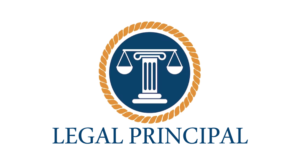
The judiciary serves as the foundation of any democratic society, ensuring the balance of power and maintaining the rule of law. It is a support point whereupon the rights and liberties of people are protected, giving a gathering to the goal of disputes and the administration of justice.
Ensuring Fairness and Value
The main job of the judiciary is to make sure that laws are used fairly. Judges have to understand and use laws fairly, considering the specific details of each situation and sticking to the principles of fairness. This fairness is really important because it stops people from misusing their power and makes sure that everyone is treated the same by the law.
Safeguarding Individual Rights
The judiciary plays a basic role in safeguarding the rights and opportunities of people. Judges have the position to review government activities and decisions, ensuring that they are predictable with constitutional principles and don’t encroach upon the rights of citizens. This function is essential in protecting common liberties and preventing the disintegration of democratic qualities.
Checks and Balances
In a system of checks and balances, the judiciary serves as a mind the powers of the leader and legislative parts of government. Through judicial review, courts have the position to strike down laws and government activities that are unconstitutional, subsequently preventing the centralization of power and safeguarding against oppression. This role is major to the upkeep of a healthy vote based system.
Ensuring Responsibility
The judiciary likewise plays a crucial role in ensuring responsibility inside society. Judges have the position to consider people and substances responsible for their activities, whether they are government authorities, companies, or confidential citizens. This responsibility encourages trust in the legal system and serves as an obstruction against bad behavior.
Access to Justice
One more imperative function of the judiciary is to give access to justice to all members of society. Courts serve as discussions for the goal of disputes, where people can seek review for complaints and have their rights justified. Access to justice is essential for keeping social control and advancing the tranquil goal of conflicts.
Challenges and Responsibilities
In spite of its essential role, the judiciary faces various challenges in satisfying its responsibilities. Overburdened court agendas, restricted assets, and cultural complexities can strain the limit of the legal system to convey ideal and effective justice.
Moreover, judicial autonomy can go under danger from political obstruction or public investigation, featuring the requirement for protections to preserve the honesty of the judiciary. Addressing these challenges requires progressing efforts to reinforce the judiciary’s ability, upgrade access to justice, and shield judicial freedom.
Ceaseless Adaptation
In a quickly changing world, the judiciary should ceaselessly adjust to new legal and cultural challenges. Mechanical headways, advancing accepted practices, and arising legal issues present novel complexities that request creative ways to deal with justice.
Courts should embrace present day advances to further develop proficiency, accessibility, and straightforwardness in the legal process. In addition, judges and legal professionals should keep up to date with legal developments and take part in lifelong figuring out how to explore the complexities of contemporary legal issues effectively.
Public Trust and Confidence
Keeping up with public trust and confidence is essential for the judiciary to effectively satisfy its command. Straightforwardness, responsibility, and uprightness are vital to cultivating trust in the legal system. Judges and court personnel should stick to high moral standards and carefully maintain impartiality and respectability.
Furthermore, efforts to improve public understanding of the judicial process and elevate access to information can assist with building trust and confidence in the judiciary. At last, a vigorous and trusted judiciary is essential for protecting the rule of law and shielding the rights and liberties of all members of society.
Final Word: Maintaining Justice for All
In conclusion, the judiciary serves as a foundation of society, ensuring the balance of power, safeguarding individual rights, and maintaining the rule of law. Its role in keeping up with fairness, responsibility, and access to justice couldn’t possibly be more significant.
As we explore the complexities of the legal system, it is essential to perceive the commitments of federal criminal appeal lawyers like those at Brownstone Appeal Lawyers. Their devotion to justice and obligation to excellence help to ensure that the principles of fairness and value are maintained for all members of society.
